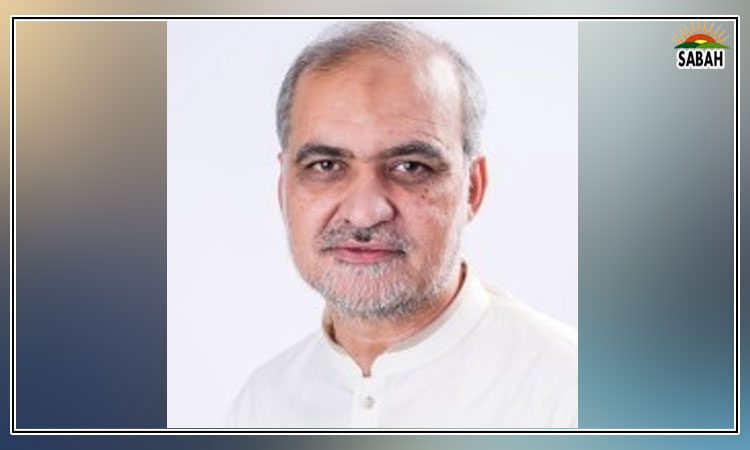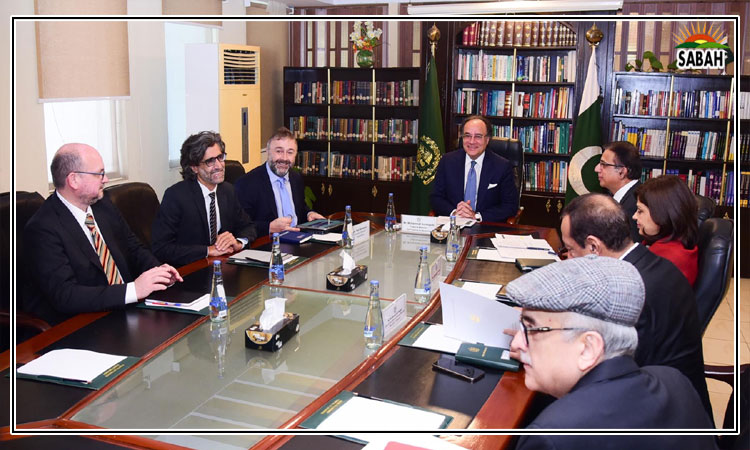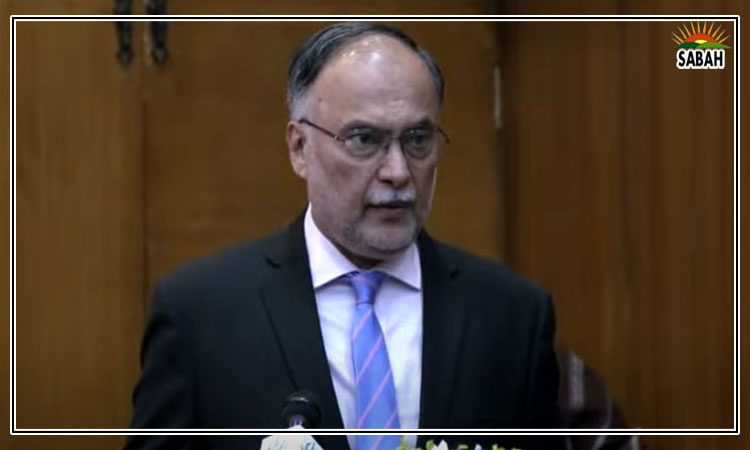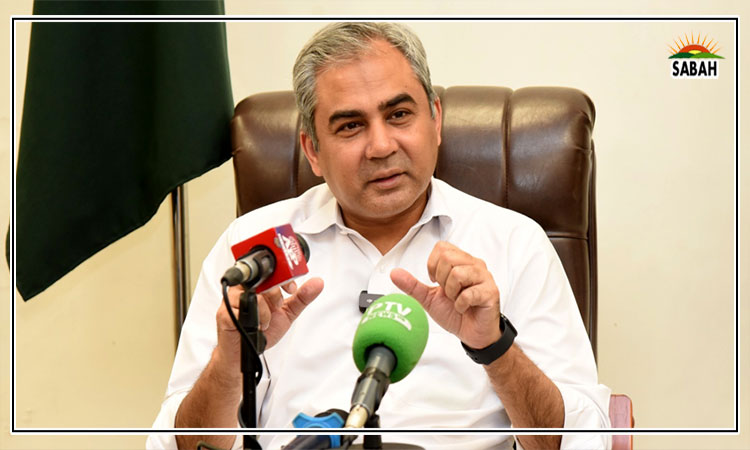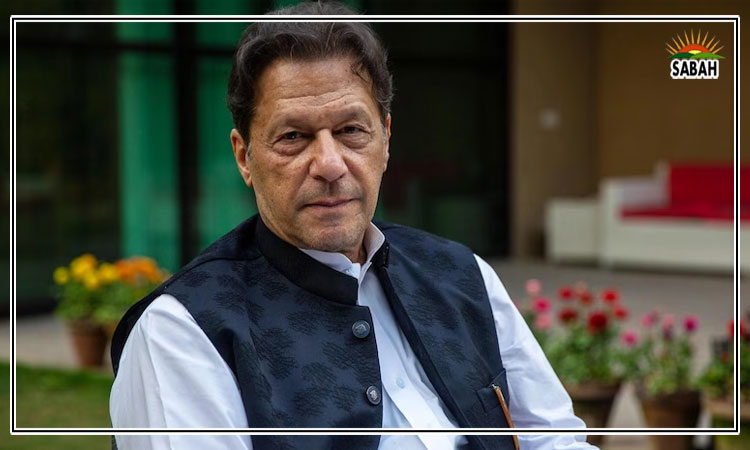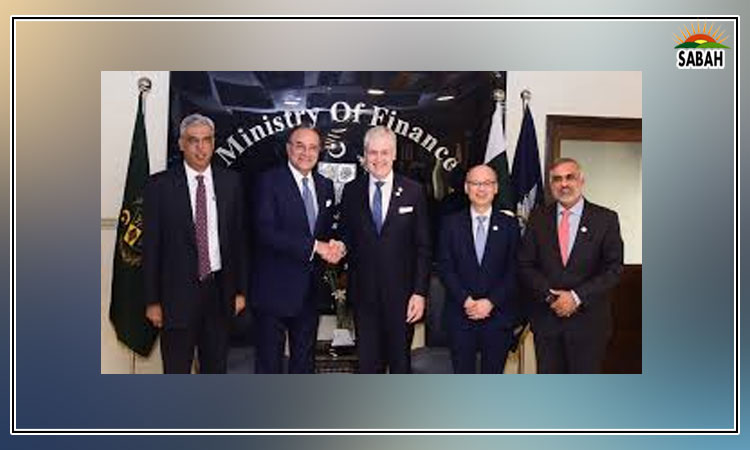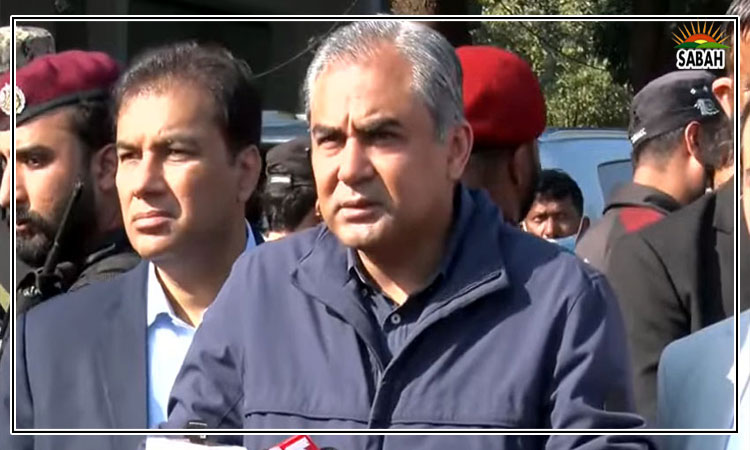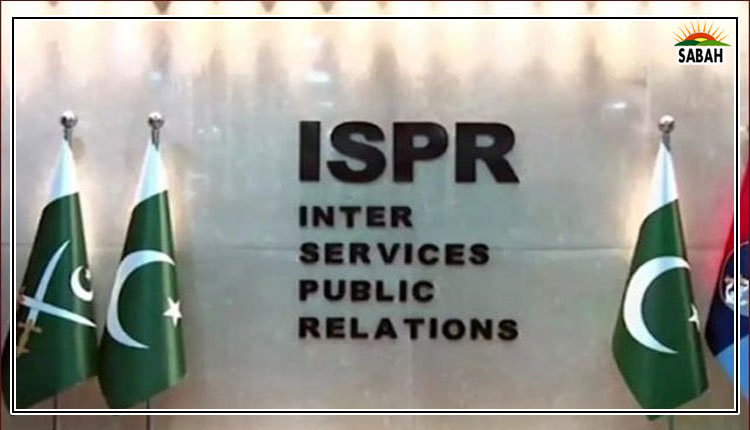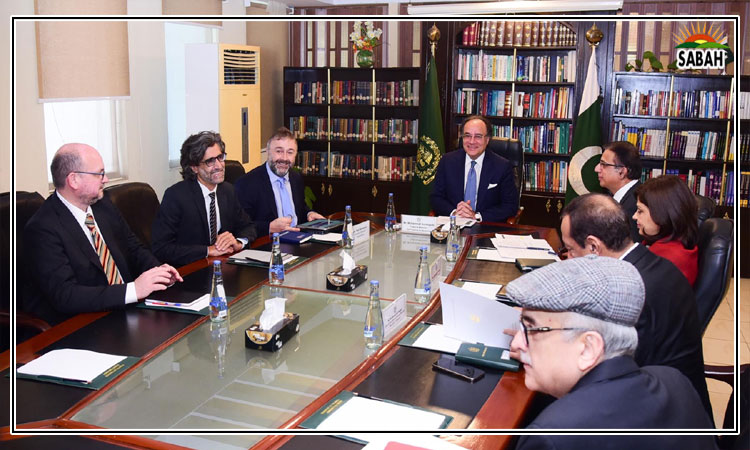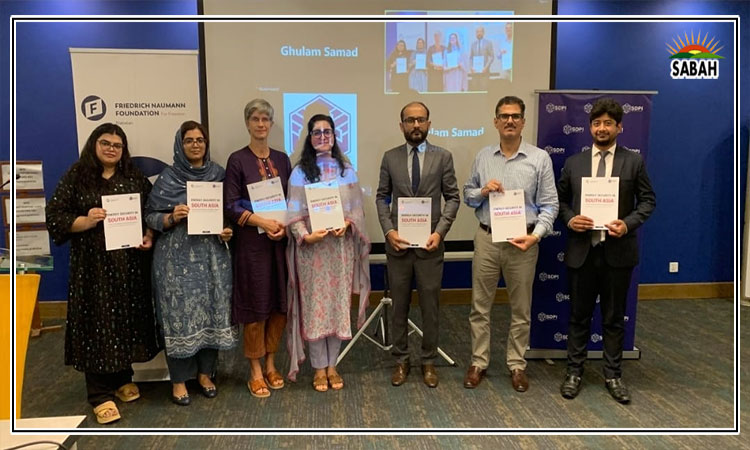Experts for collaborative efforts to address energy challenges in South Asia through regional cooperation
ISLAMABAD, August 04 (SABAH): The experts at the study launch of Energy Security in South Asia have stressed the need for collaborative efforts to address energy challenges in South Asia through regional cooperation to ensure energy security.
Speaking at the launch of the study “Energy Security in South Asia: A case of Transitioning to Sustainable Sources” on Monday, jointly prepared by the Sustainable Development Policy Institute (SDPI) and the Friedrich Naumann Foundation (FNF), Birgit Lamm, Country Head of FNF, stressed on the urgent need for sustainable energy policies, especially in the light of the current focus on energy prices in Pakistan.
She highlighted that energy, being a strategic industry, is essential for all. The war in Ukraine has exacerbated energy prices in the region, leading to fuel scarcity and increased costs. With Pakistan’s growing population and outdated infrastructure, the issue of circular debt is reflected in rising commodity prices. Lamm emphasized the need to diversify energy sources, increase efficiency, and reduce dependency on the global market for fuel.
Ubaid ur Rehman Zia, Head of Energy Unit at SDPI, emphasized that South Asia, while being one of the fastest-growing regions, is highly susceptible to climate change. The ongoing socio-economic turmoil poses a significant challenge, particularly from an energy perspective. Despite the region’s vast potential, connectivity between countries remains limited. Over the next 30 years, South Asia is expected to add over 600 million people, significantly increasing energy needs. However, 66% of the region’s energy is imported, with fossil fuels accounting for 80% of total energy production.
Considering these opportunities and challenges, the study “Energy Security in South Asia: A Case of Transitioning to Sustainable Sources”, examines the viability of regional cooperation and transition towards renewable energy as the key to addressing energy security concerns in South Asia. It analyses the energy sector landscape of South Asia, development plans for regional cooperation, and policy focus towards renewable energy upscale. It devises a roadmap for a more inclusive and green future of the energy sector in South Asia. The study recommends the need for structural economic adjustments, decoupling economic growth from environmental impact, and addressing the lack of supporting policies and technology investments. It pointed out inefficiencies in fossil fuel use and limited developments in renewable energy technologies. Financial constraints limited fiscal space, and lack of comprehensive energy policies further complicate the region’s energy landscape. It highlights the need for drafting extensive SOPs for Cross-Border Electricity Trade (CBET), designating regulatory authorities for CBET, and setting up regional and country-wide master plans to address these issues.
Hemantha Withanage, Executive Director of the Center for Environmental Justice in Sri Lanka, discussed Sri Lanka’s reliance on coal and thermal power for 50-60% of its energy needs. He noted Sri Lanka’s ambitious target of achieving 70% renewable energy by 2030 and mentioned ongoing communication with India about installing an underwater transmission cable for energy transfer. He emphasized the importance of assessing the environmental impact of renewable energy and ensuring that energy cooperation is based on fair pricing, without exploiting regions with limited access to energy.
Dr. Khalid Waleed, Research Fellow, SDPI, noted that there are hard borders in South Asia and geopolitics drives the regional dynamics, however, the shared threat of climate change is beyond physical borders. Moreover, the EU’s Carbon Border Adjustment Mechanism (CBAM) also highlights the need for a collective regional approach to ensure future export competitiveness. An integrated and collaborative regional approach is needed to tackle these emerging challenges like climate change-induced adversities, integration of renewable energy, and trade tariffs. One solution is to re-orient the South Asian Association for Regional Cooperation (SAARC) on the agenda of climate change and rename it to South Asia’s Resilience for Climate Change (SARCC). He also highlighted the need for regional carbon markets, regional clean energy platforms, and innovative regional financial mechanisms
Dr. Ghulam Samad, Senior Research Specialist at the Central Asia Regional Economic Cooperation (CAREC), provided an update on the CASA-1000 Project, which has faced implementation delays and increased costs over the past 20 years. He outlined various challenges, including the evolving security situation in Afghanistan, coordination issues among multiple contractors, and the impact of COVID-19 on machinery imports. Dr. Samad stressed the importance of addressing these challenges to avoid further financial losses and ensure the project’s successful completion.
Ahsan Javed, Research Fellow at the SAARC Energy Centre, highlighted the significant portion of South Asia lacking access to energy, exacerbated by climate change driven by fossil fuel use. He advocated for utilizing indigenous, clean, and green resources, citing Bhutan’s model of exporting energy during the summer and importing it back in winter as an example for neighboring countries. Ahsan Javed recommended decentralizing renewable energy projects, implementing battery storage solutions for grid stability, and increasing the electrification of transport to reduce reliance on fossil fuels.
Shaukat Ali, Regional Programme Expert for South Asia at the Alliance for Rural Electrification (ARE), emphasized the need for policies to electrify rural areas through decentralization. He pointed out India’s success in achieving 95% rural electricity coverage and suggested that other countries should follow suit. Ali recommended prioritizing renewable energy in policy-making, focusing on rural electrification, and ensuring political understanding between states to facilitate regional energy trade.


